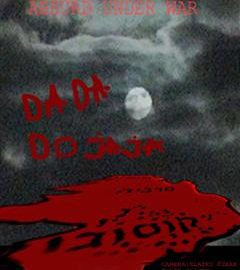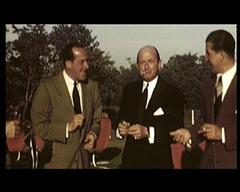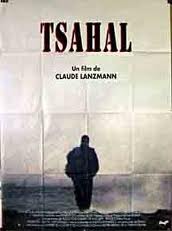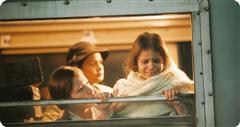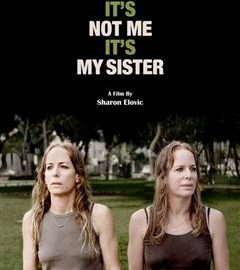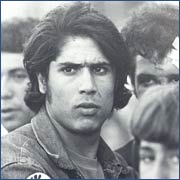The movie is a personal journey to Serbia, due to the death of my Yugoslavian boyfriend who immigrated to Israel. The movie focuses on wartime absurdness of reality and in two disciplines-Cinematographic and theatre, in Yugoslavia and in Israel [1997-2002].
Absurd, surrealism and grotesque are streams of art, which developed after the world wars due to the frustration from life, which came about after those wars. In the cinema the movies of the genius directors Emmir Kusterica and Haim Busaglo are examples for surrealism under war. In theatre in Israel there is a trend of absurd plays, of which some are classics like those of Harold Pinter. In Yugoslavia many original plays which are absurd, satirical, cynical and with black humor are produced.
It seems that due to the ethnic mixture in Yugoslavia and Israel, there are influences of different cultures and religions on the musical discipline. The music of Goran Bregovich as he himself says is very frankensteinish because it is achieved by elements that are disharmonic. The paradoxical fact is that in the near past Yugoslavia was a communist and an atheist country, where there was no significance to religion, whereas nowadays all wars are caused by religion and nationalism. The question that must therefore be asked: is it not possible to be “Frankenstein” in the political reality as well as in the arts?
Everything is going great for the director: he inherited the benefits of a generation of New York Jews who turned their backs on their religious pasts and re-defined themselves in America. But when his ex-patriate Israeli hustler pal Shimon walks into the trendy Kabbalah Center in Beverly Hills one day and walks out newly-religious – with a one-way ticket to a yeshiva in Jerusalem in hand – the director’s world is turned upside down.
Following Shimon to Israel, he moves through different spiritual and religious communities investigating and wondering if everyone – not just Shimon and Madonna – has lost his mind.
Two men, one woman and a baby is the formula for this alternative family.
Dafna, a straight single woman, teamed up to have a baby with Itamar, a gay lawyer, and Kai, his German partner.
Tensions grow throughout the pregnancy, and eventually erupt after the child is born – causing confrontation and separation. For over two years the film follows the characters as this facinating story unveils.
The film “Reds- Chronicle of a Struggle” follows the struggle of the fans of the Hapoel Tel-Aviv basketball team against the decision of the Tel Aviv municipality to tear down the Ussishkin Hall, their home.
In the center of the film stands father and son, Nati and Erez, true warriors, red in blood and soul. The battle for Ussishkin quickly left the sports pages, becoming a battle for reserving cultural properties in Tel Aviv. At first, the fans way was positive, driven by love to the hall, but soon the Tel Aviv municipality smashes their hope. It closes the municipality meetings, doesn’t agree to sit and talk with them and sends the police to guard and arrest them. Just before the ruling decision, the battle goes out of control until the unavoidable explosion.
For seventy years, Menucha has remained silent. The image of parting at the train station in Warsaw in the Spring of 1935 remains engraved in her memory. The face of five year old Menucha is pressed against the window of the train, her eyes, wide with horror, stare at the scene on the platform.
Her sister Mindel, 11 years old, is clinging desperately to their mother’s dress. The piercing whistle of the train fills the air. The mother, in a single movement, tears away from the grasp of her daughter and rushes to board the train. The clatter of the wheels erases the image of the child vainly chasing the vanishing train.
Hardships, confusion and pessimism bring unprecedented numbers of Israelis to the doorsteps of European embassies, applying for foreign passports in search of a brighter future and a safer homeland.
Promised Land follows three of them – Hilik, Shani and Ilana, all descendants of Holocaust survivors – through their journeys to obtain the desired German passport. A complex and stirring story unfolds as disturbing questions of homeland and history are addressed.
Hilik Popper, whose traumatic experiences in the Lebanon War drove him to immigrate to Germany, is facing his ultra-Zionist brother`s accusations and his father`s wary broken heart.
Shani Rizer is flying for the first time in her life to Germany, in search of her grandfather`s lost documents. Gradually her feelings of fear and resentment give way to an affectionate quest for her own newly-acquired German identity.
Ilana, born and raised in a Kibbutz to parents who embodied the Zionist ideal, is torn between her recently-dead father`s unspoken will and the future of her only daughter.
Standing together at the entrance of the Bergen-Belsen memorial site, they face the hardest question of all.
They are born in pairs – with the same horoscope, same genetic code and the same potential. From that moment on they are destined to go through life with the conflict of their shared identity.
The film tells the story of three sets of twins and their ways of dealing with this miracle (or error?) of nature.
The first story is my sister’s and mine. We are now 45 years old. The pendulum of our relationship, swinging between the extremes of suffocating closeness and total estrangement, is presently hovering at some indefinable point between the two. The making of my film and the progress of her fifth pregnancy compel us to renew our intimacy, an intimacy sown with perils that only the two of us know.
Haya and Edna, 53, have lived together since the day they were born. Neither of them has ever lived with a man. Three years ago Edna gave birth to twins, whom they are raising together as two mothers.
Sasha and Rafi are 69. Sasha is the “big brother”. He claims that the twin who comes into the world first is always stronger, and it is his duty to take care of his weaker twin. As if to realize this prophecy, Rafi becomes ill with Parkinson’s disease. His deteriorating condition forces the brothers to cope with questions of inequality, guilt and the impending separation.
The film deals with questions that each of us eventually faces – questions of identity, personal relations, intimacy versus space, self-determination and choices.
